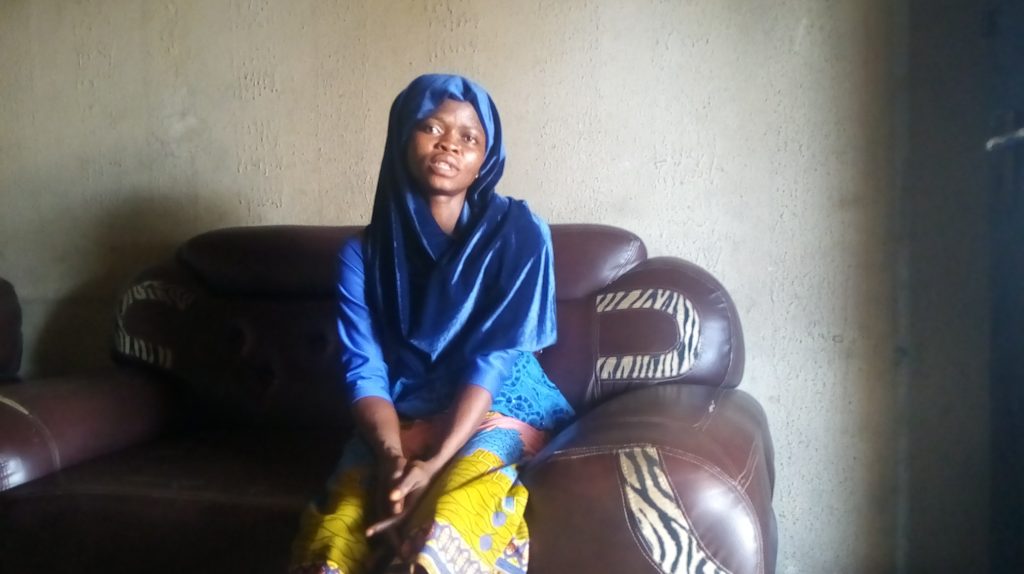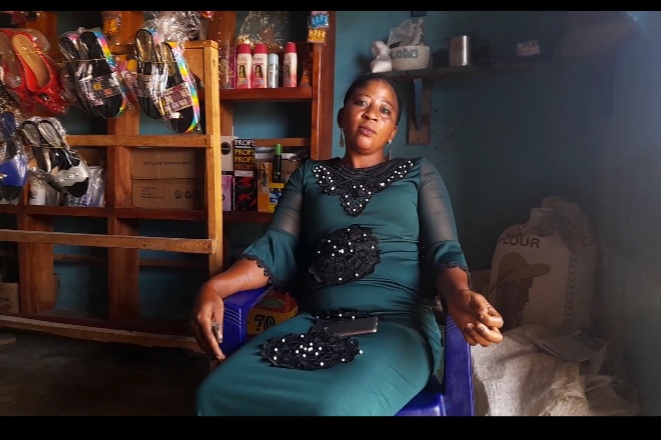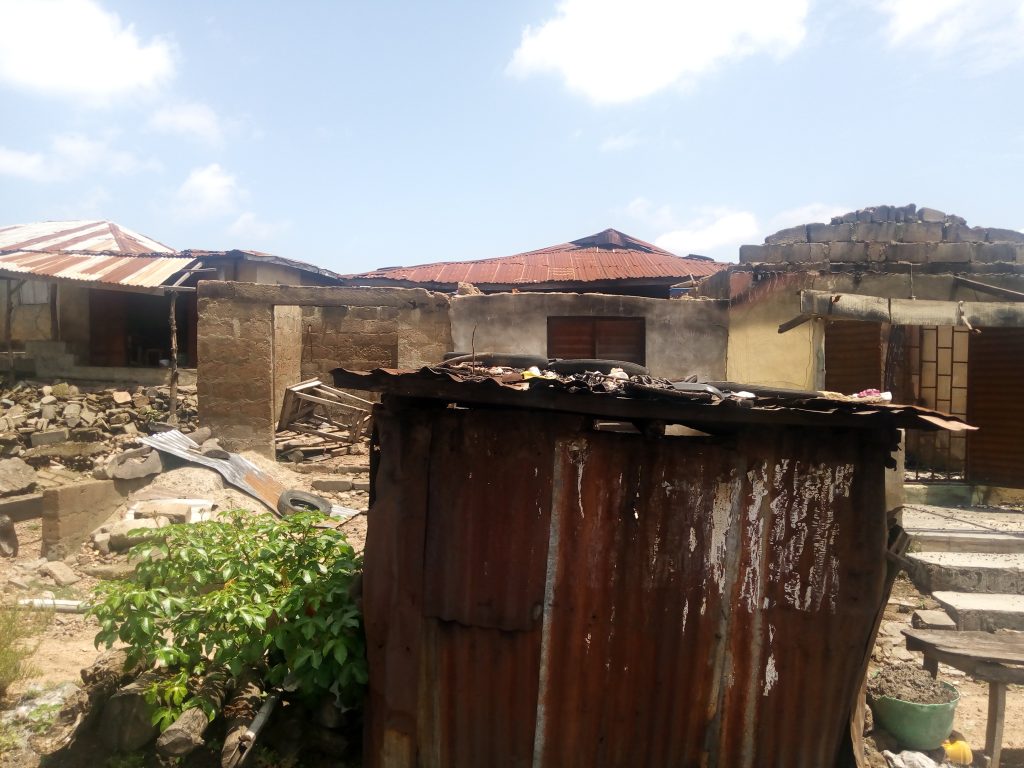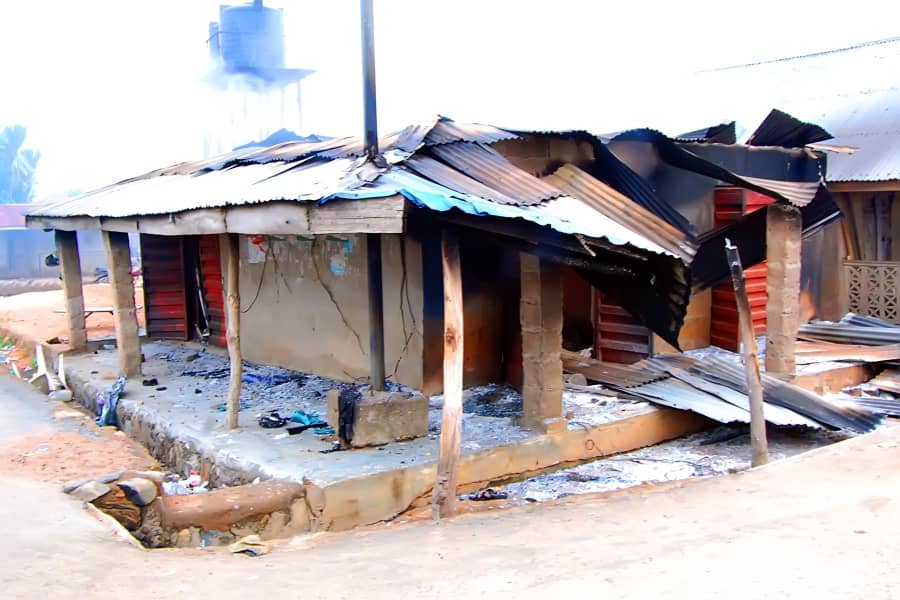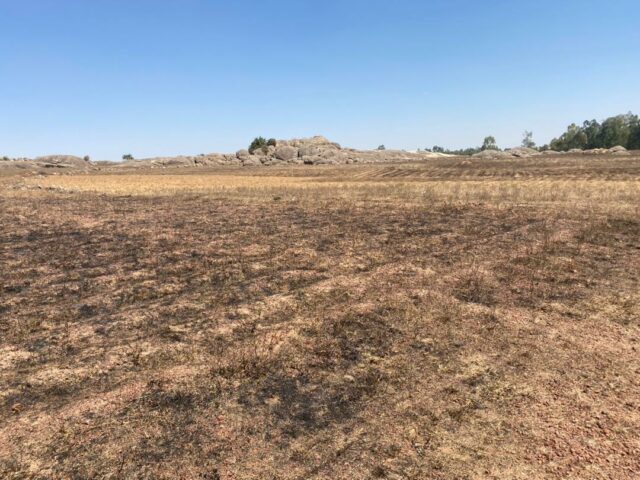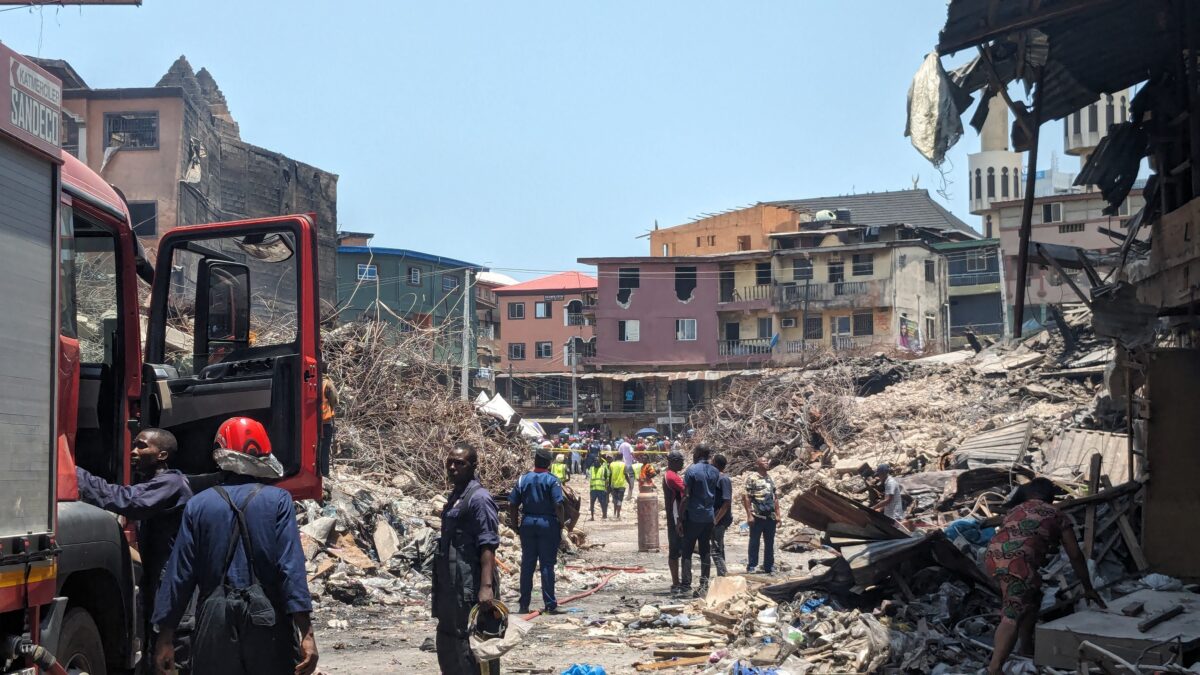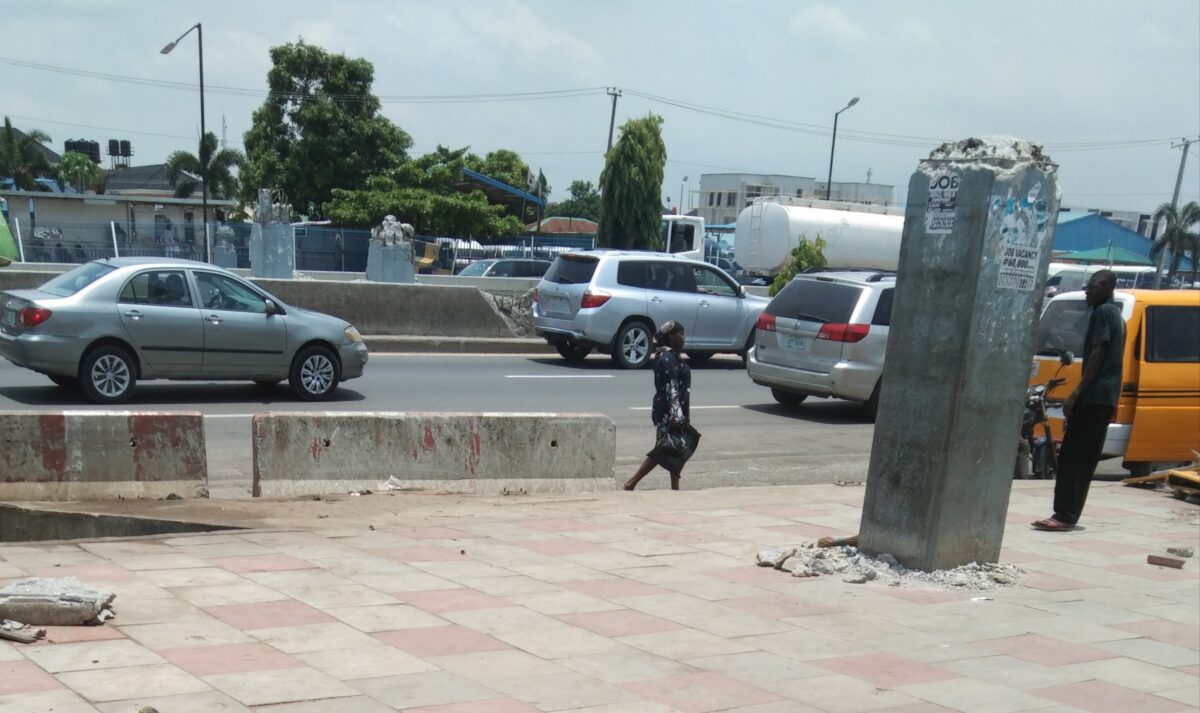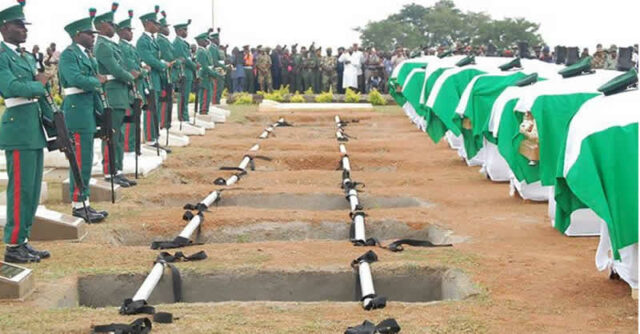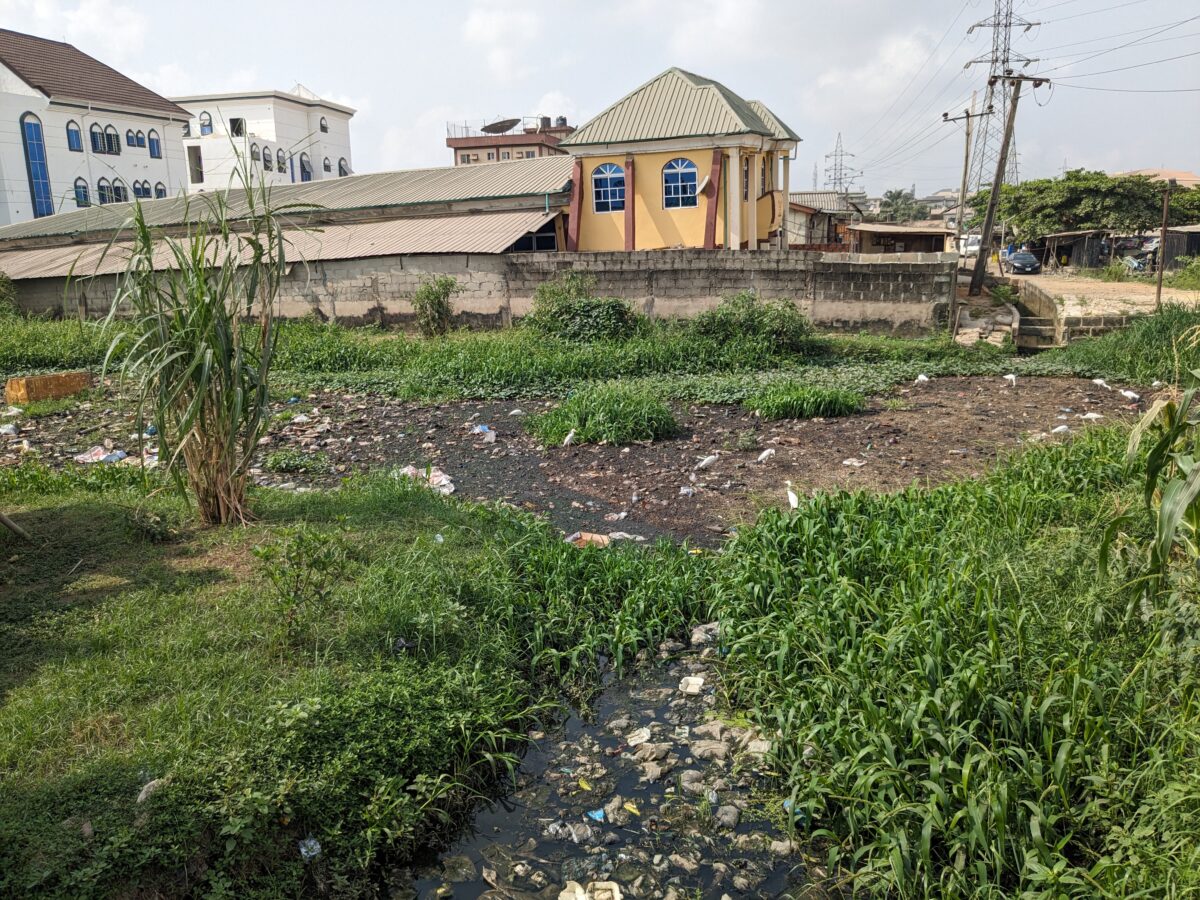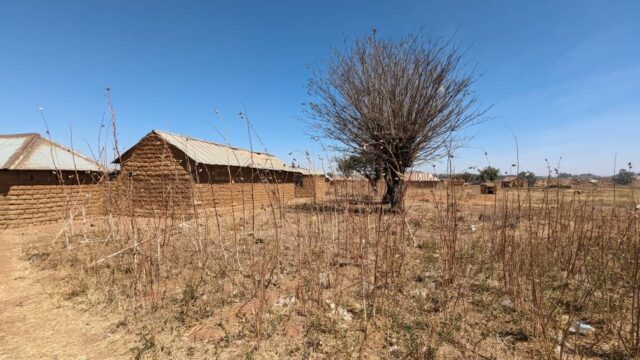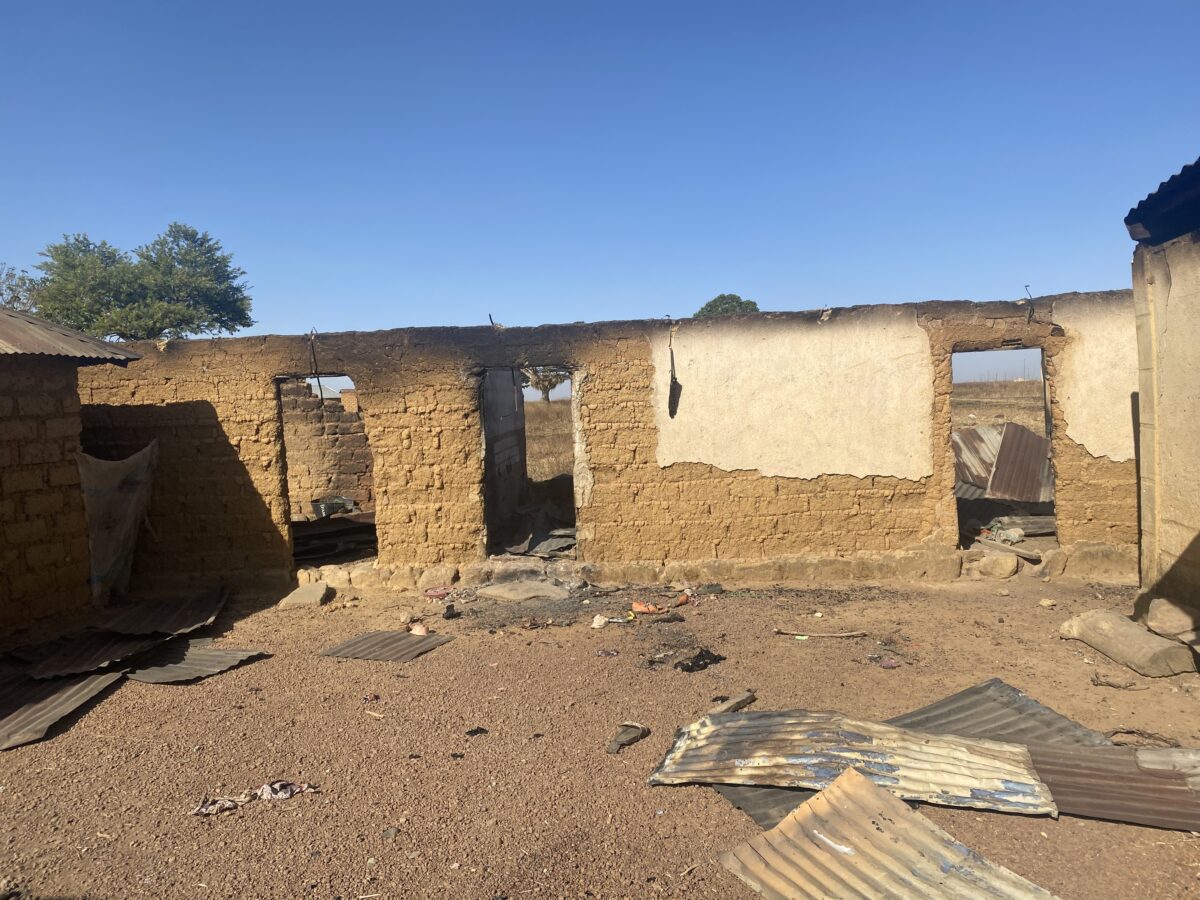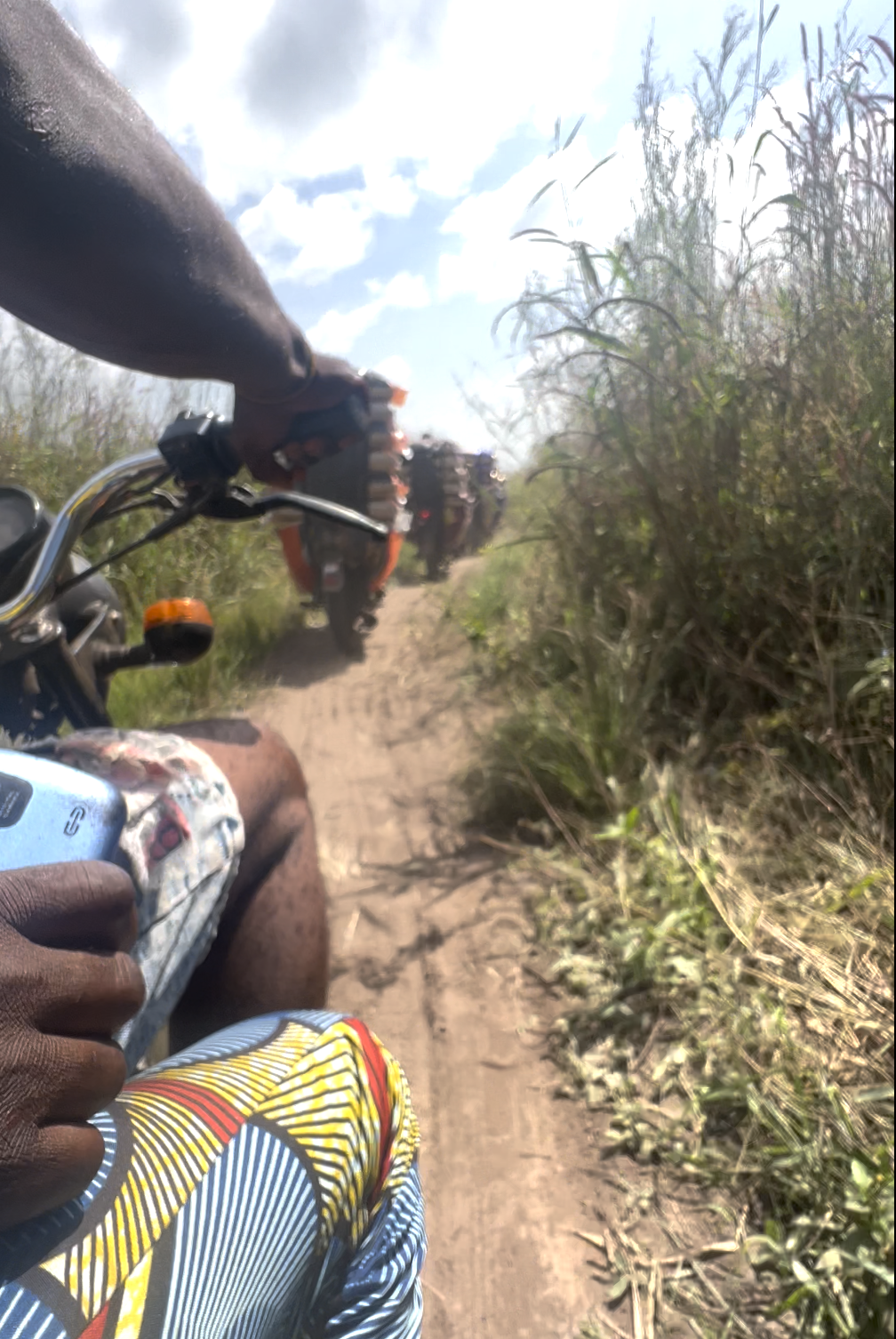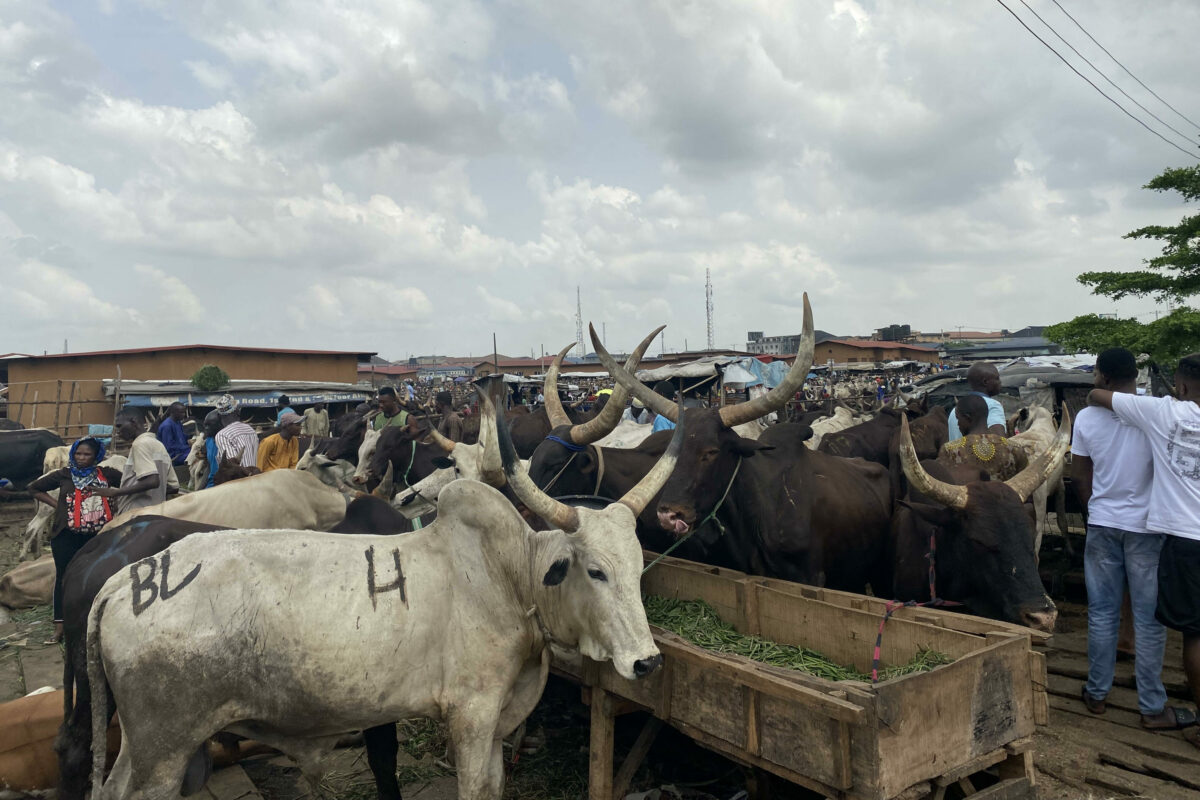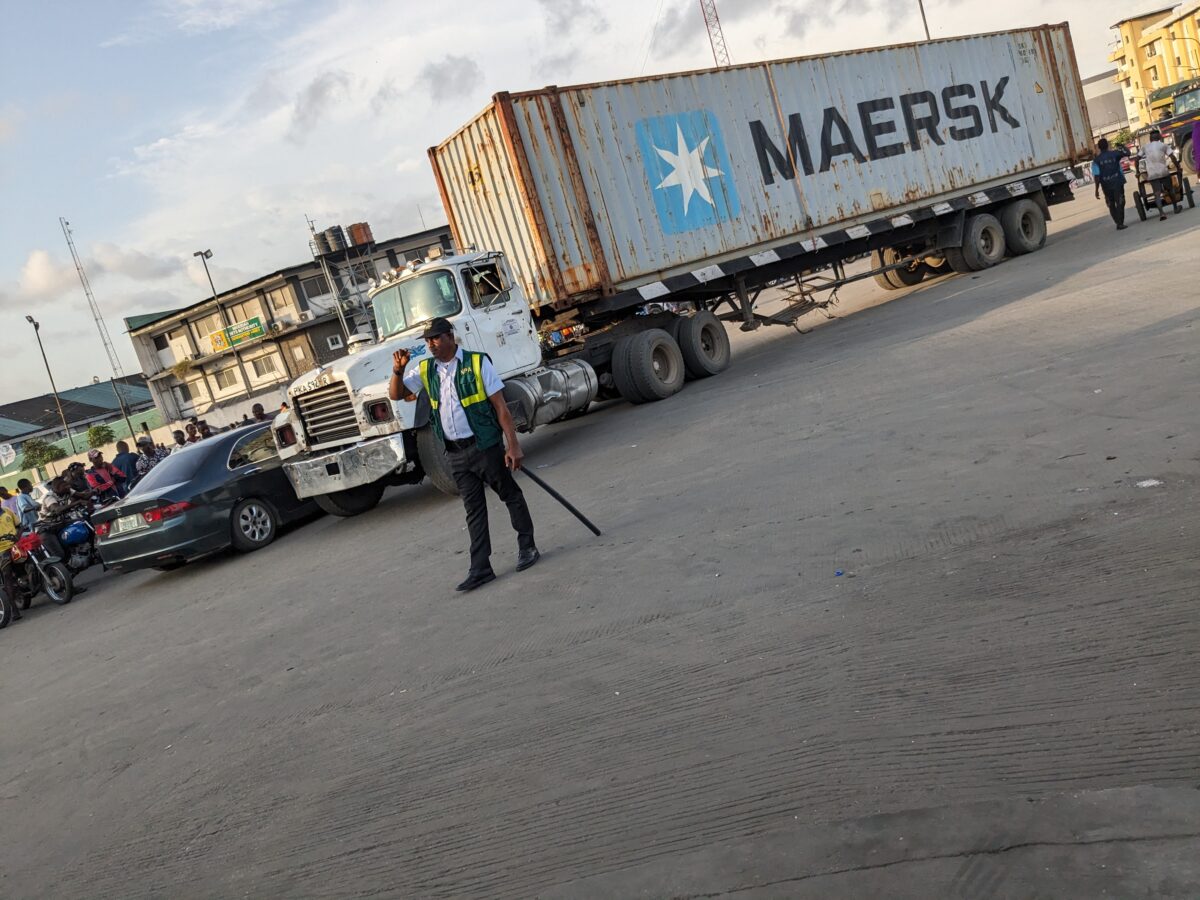On the eve of June 6, an army of Fulani marauders enveloped Ìgàngàn, an agrarian town in the Ibarapa region of Oyo State, killing 11 people in their sleep and burning multi-million naira properties to dust. Nine locals had a shave with death, suffering life-threatening deformities which some of them described as “worse than death”. Amidst the rumours of an imminent siege, investigative journalist Gabriel Ogunjobi visited Ìgàngàn to document how the survivors were picking up their pieces.
HEROIC DEATHS, UNSETTLED FAMILIES
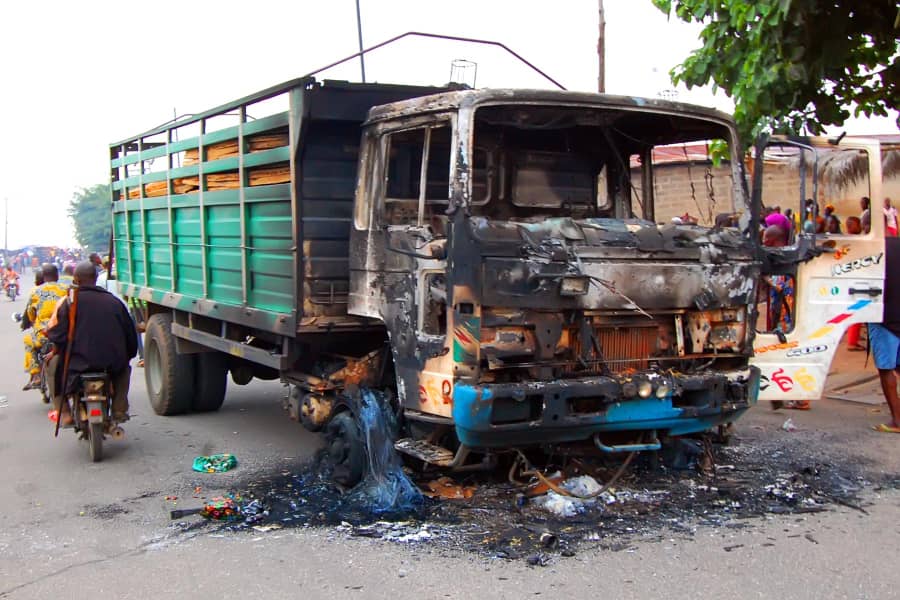
Ibrahim Adeagbo, 55, was in front of the two wholesale provision stores he was paid to guard when Fulani militias marched in. Death did not meet him there but in what was reported as a heroic fight to save his coworker.
His colleague, 70-year-old Ramon Ewebiyi, was fighting some of the armed attackers whose immediate mission was to torch the Adolab Golden Heritage gas station, one of the places he was guarding, so that scores of huts nearby could be gutted in no time.
Adeagbo and Ewebiyi were soon overwhelmed by the assailants and ultimately became sacrificial lambs. The assailants proceeded to other destinations after setting fire on two fuel pumps at the station.
“I am happily married but the impact of my father’s death in my life cannot be quantified,” says Khadijat, the daughter of Adeagbo.
To Khadijat, no one is better than her father. Adeagbo’s death has unsettled the newly-wedded lady.
“The Fulanis also burnt my shop but that doesn’t matter as much as losing my father,” she told FIJ. “I remember he was the one who advised me to stay a little longer in the rented shop until he was able to provide enough support to complete the building of my own tailoring shop we started a while ago.
READ ALSO: INVESTIGATION: Farmer-Herder Crises in Oyo have Driven over 800 Children out of School
“He is dead now; I cannot complete the unfinished project and neither can I meet the needs of my younger siblings in apprenticeship.”
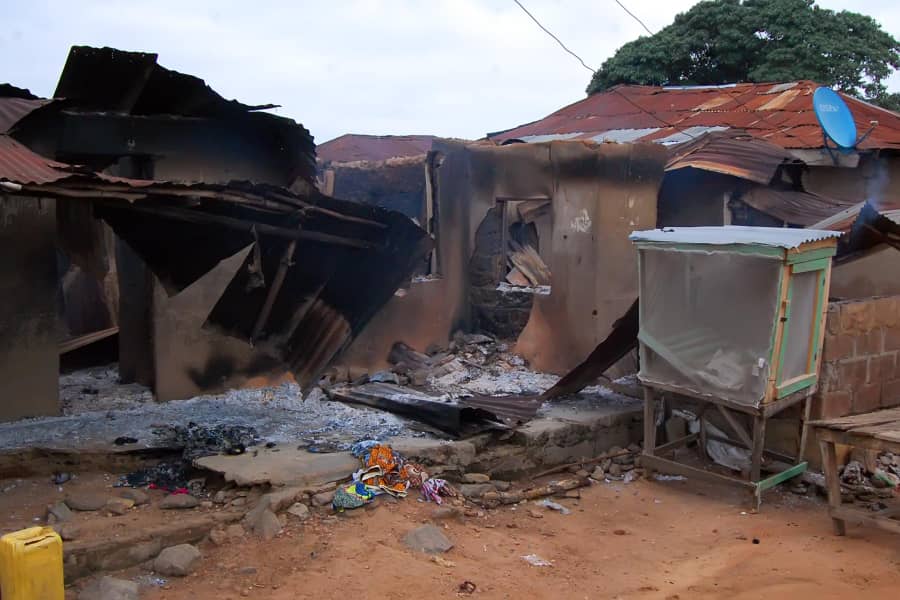
As the first child in the family of eight, now seven, she is very worried about how daunting the future would be for her taking care of her five other younger ones and her unemployed mother in the absence of his late father.
‘WE THOUGHT IT WAS A BOMB BLAST’
“The gunshots were sporadic. We were scared some armed robbers had surrounded us,” Shakirat Raji says, recalling the event that led to the death of his 75-year-old mother Rabiat.
“Suddenly, we heard the loudest sound: Boooooom! We thought it was a bomb blast. That was when everybody started running. No one looked out for each other. Everyone just kept running.”
Just as Shakirat rushed into the forest, Rabiat woke up and started racing, but her legs failed her. The killers met her in flight and killed her.
“I didn’t even know my mother had been hit by a bullet. Many hours after the attackers left and we were called to return to the town, I saw my mother lying dead,” Shakirat lamented.
She had experienced a similar invasion in 2006 and would not want a third time. “At least, we lost her at an old age,” she says in a half-empty shop where she laid before speaking to this reporter. “So, we are still thankful to God.”
DEATH CHRONICLES: CHILDREN, ADULTS BUTCHERED!
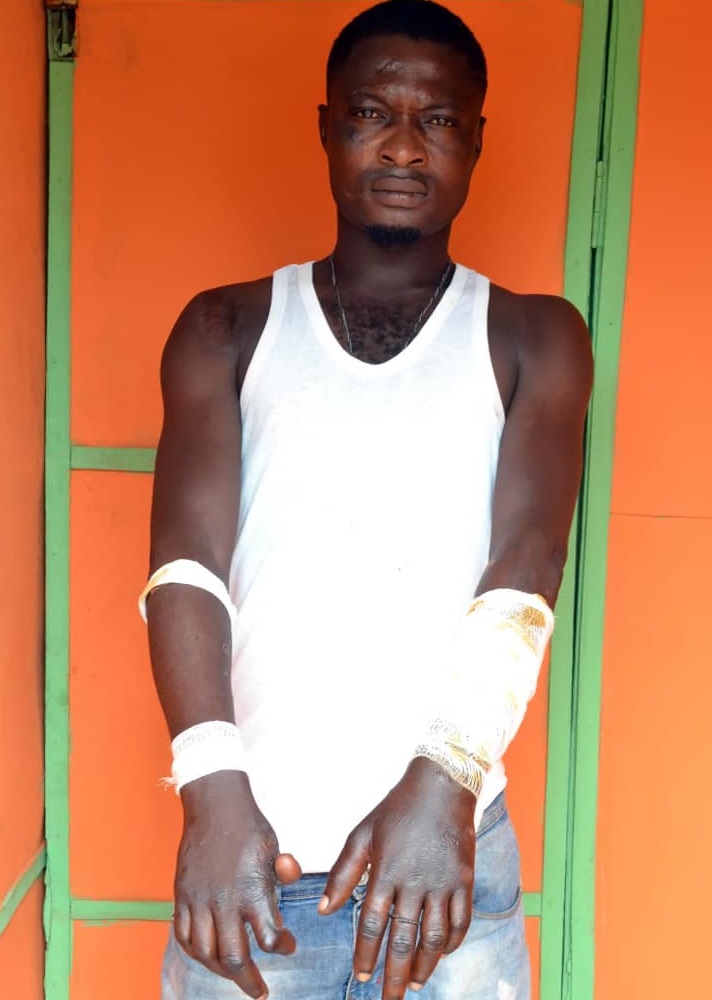
Until January 2021, cows surrounded the market square in daylight, but on the gloomy night Fulani struck, human flesh and blood littered the street in place of cow dung. The night revellers were forced to take one last sleep, and the early sleepers took their rest in graves.
Akinola Ogundijo was one of the revellers. He was riding home at midnight from the hotel where he had accommodated guests who attended his father’s funeral when he met the Fulani assailants.
FIVE-YEAR-OLD HIT BY A BULLET IN THE HEAD
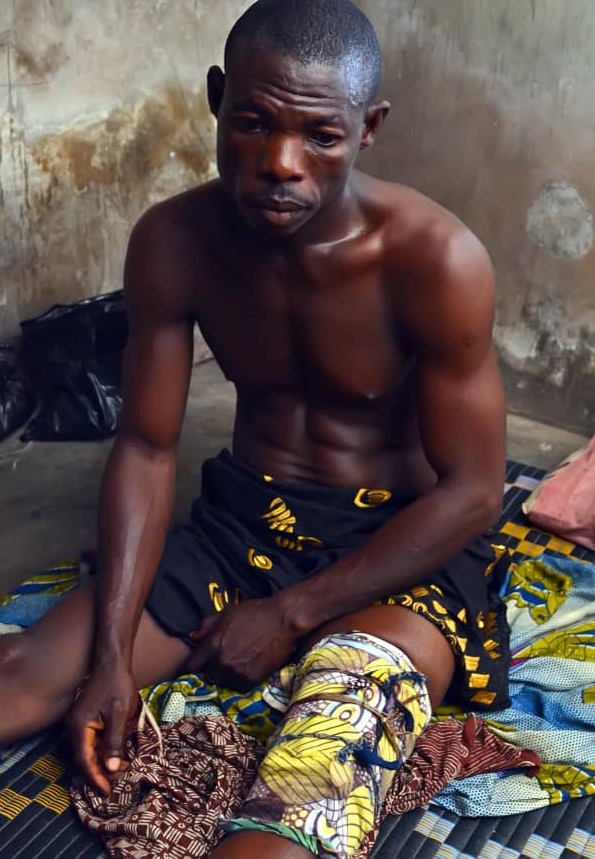
In his post-death picture, Ogundijo’s face appears disfigured, with legs soaked in his own blood. Perhaps. he first resisted his attackers until he was severely cut on his forehead and eyes with a large and heavy weapon like an axe or a cutlass. Bullet wounds on his legs also left his native trousers soaked in blood.
Abigael James, a mother of three, heard the sound of war and quickly carried Peace, her first child. The bullet that might have hit her chest landed on her child’s head.
She thought the five-year-old boy was still deep in sleep until she felt blood in her palm and realized that Peace was no more.
Her first child was given to her with blood on his head, and she felt the joy of motherhood that year. The unfortunate reverse had just happened now. The mother laid her child with tears.
The attack went on and on until the death toll reached 11.
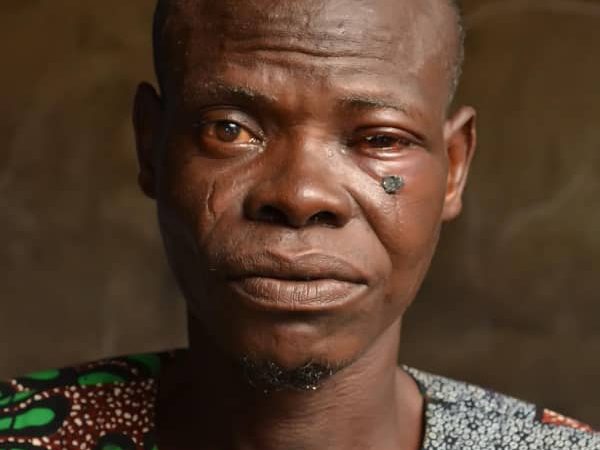
Jimoh Ogunlana, 55, was sleeping in the corridor of his home at Ajele compound when a bullet hit him. He was a guard, but not on duty that night.
TABLE: THE IGANGAN RESIDENTS KILLED BY FULANI MILITIAS
| S/N | NAMES OF ÌGÀNGÀN RESIDENTS KILLED BY FULANI MILITIAS ON JUNE 5 | AGE | HOW THEY DIED |
| 1. | Akinola Ogundijo | 35 | Buried his old father in the day, hacked to death at night on his return from guests’ hotel |
| 2. | Ramon Ewebiyi | 70 | Filling station guard torn in the belly with axe |
| 3. | Ibrahim Adeagbo | 55 | Provision store guard killed while resisting invasion |
| 4. | Ajani Olaogun | 40 | Shot dead on the streets |
| 5. | Lateef Ogundare | 52 | Shot dead on the streets |
| 6. | Olaewe Oguntoye | 72 | Shot dead in sleep |
| 7. | Bolanle Oguntoyebo | 30 | Shot dead in sleep |
| 8. | Jimoh Ogunlana | 55 | Shot dead on the streets |
| 9. | Seun Adetogba | 45 | Shot dead on the streets |
| 10 | Rabiat Raji | 75 | Shot dead on the run |
| 11. | Peace James | 5 | Shot dead in her mother’s arm |
Seun Adetogba also died under similar circumstances in the Agoro compound near the Isale Oja area.
Olaogun Ajani, 42, Ogundare Lateef, 52, and Olaewe Oguntoyinbo, 72, were other guards on duty that died that midnight. In total, Igangan town lost five guards to an attack that lasted less than five hours.
And, there was a 30-year-old Bolanle Oguntoyinbo who was shot on the streets of her house in Alagbogbo area.
Nine other people, namely Olasunkanmi Osintayo, Akadir Quoyum, Michael Ogunbode, Matthew Akindele, Sunday Taiwo, Jamiu Oguntoyinbo, Abass Ilori, Kehinde Olukunle and his brother Adefemi survived the attack with various degrees of injuries. Bullets ripped some of their thighs and damaged some hands so much that they were eventually cut off.
SURVIVORS’ ACCOUNT: ‘TO BE KILLED IS BETTER’
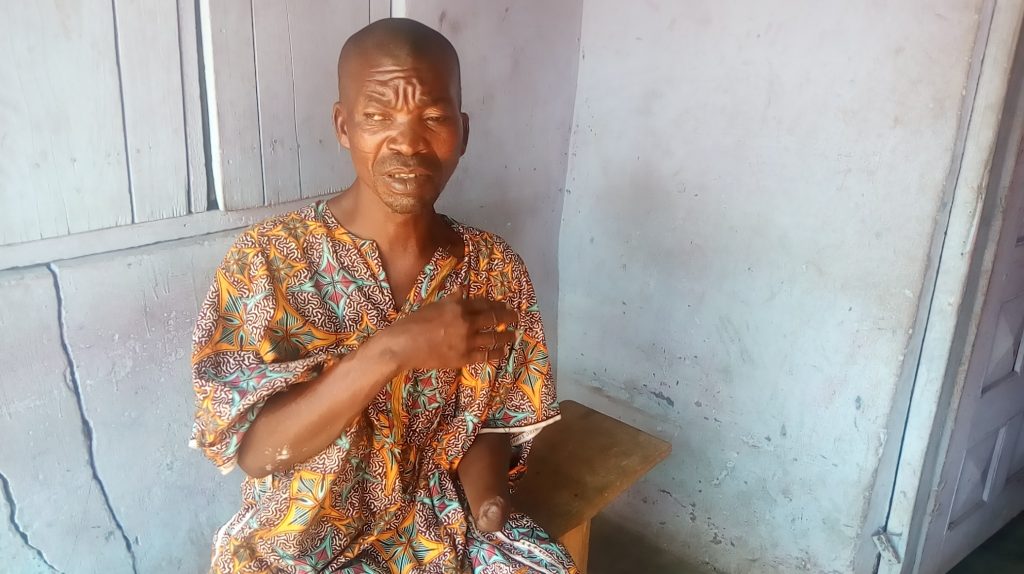
“Gently, old one. Take it easy.” These were the words that accompanied every step Adefemi Olukunle, 47, took from his dimly-lit corridor to the entrance. A typical day sees Adefemi on the farm, but today, he slept and waited for food.
“They wanted to kill me; only God saved me that midnight,” he began. “They asked me to stretch my hand and one of them pressed a small machine in his hand and the knife sped out, making a sound. That’s how they chopped my hand.
“Again, he put the knife on my neck from the back and cut me two times near the ear. I pretended that I was dead before they left me alone. In retrospect, I wish they had killed me. Today that I am not dead, how can I make a heap with one hand?”
ABANDONED BY WIFE AFTER ATTACK
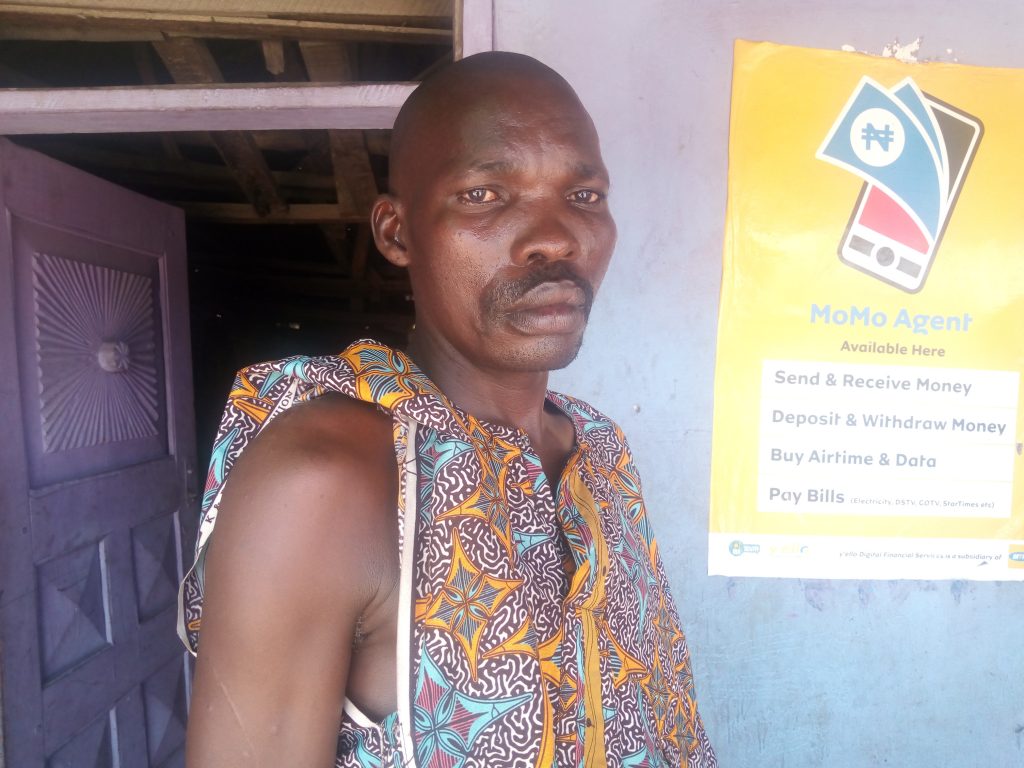
His brother, Kehinde, 45, was wounded in different parts of the body: the shoulder, hands, and waist.
Although none of the cuts dismembered his body, the injuries dismantled his family. His wife left him and took their three children away because he was incapable of performing the role of a father.
Whilst still dealing with the regular pain in his bones, he is starving. If he has his way, he will return to farming immediately, but his hands can’t hold a cutlass for long let alone heap with hoes.
“My wife has abandoned me,” he told FIJ. “I cannot go to the farm again. Now, I depend on my extended family for a living.”
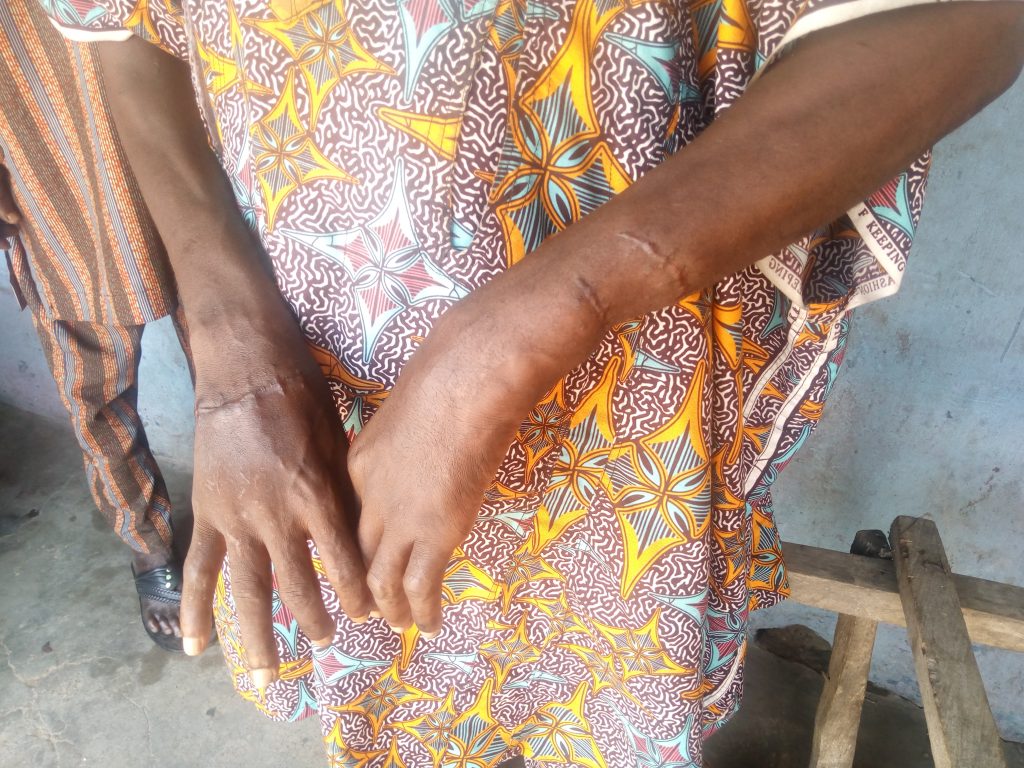
His appeal, however, is that “if the government is interested in doing anything for me and other people who have been attacked, we should be contacted directly and not through any ghost delegate who would still go and make a fortune from our misfortune”.
AT A GLANCE: HOSPITALIZED VICTIMS OF THE ATTACK
| S/N | NAMES OF INJURED VICTIMS FROM FULANI MILITIAS ATTACK | AGE | NATURE OF ATTACK |
| 1. | Olasunkanmi Osintayo | 40 | Gunshot wound in the thigh while on duty as a guard now, walking with the aid of stick |
| 2. | Qoyum Akadir | 27 | Deep matchete cuts on both hands |
| 3. | Adefemi Olukunle | 47 | Right hand chopped off, deep cut on the neck |
| 4. | Kehinde Olukunle | 45 | Hands disfigured and stitched, multiple machete cuts on the back |
| 5. | Abass Ilori | 26 | Survived multiple gunshot wounds while on duty as a guard |
| 6. | Jamiu Oguntoyinbo | 37 | Survived gunshot wound in the house |
| 7. | Michael Akindele | 36 | Survived head and hand gunshot wounds |
| 8. | Mathew Ogunbode | 28 | Survived gunshot wound while on duty as a guard |
| 9. | Sunday Taiwo | 30 | Shot on the leg in the house |
COUNTING THE COST OF LOOTING
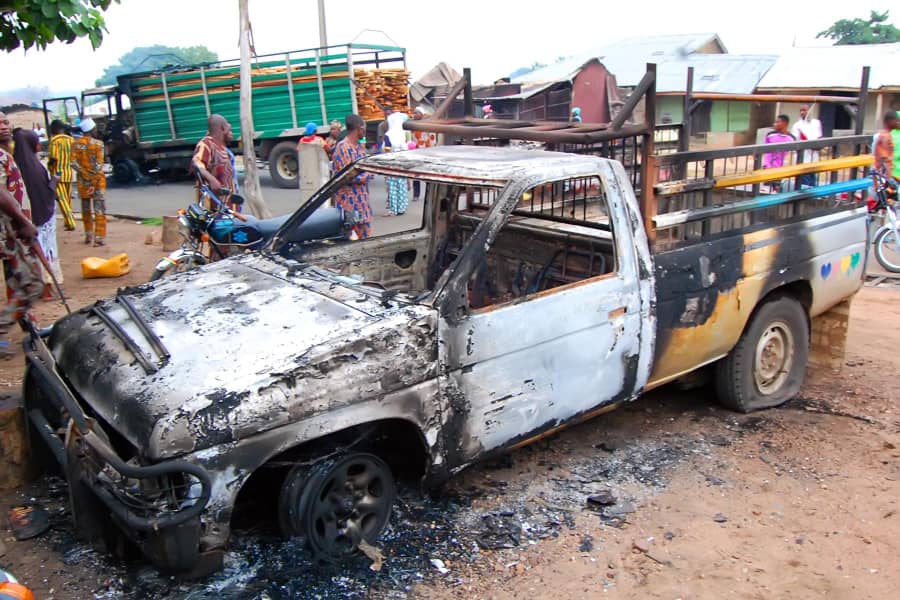
The king lost his palace and a photographer lost all equipment with memory cards and pictures taken from farms destroyed by cows. In all, about 50 people lost one thing or the other.
In front of the gas station where the burning began were rows of stores, including Ramota Adesina’s newly-stocked dual stores.
LIST: THE PROPERTIES RAZED IN THE ATTACK
| S/N | NAMES | PROPERTIES |
| 1 | Asígàngàn of Ìgàngàn | Palace |
| 2 | Ibraheem Ijadi | a complete building and a boutique |
| 3 | Monsuru Aderoju | a building, sewing machines and motorcycle |
| 4 | Suliat Adepoju | a shop full of foodstuff and cashew nuts |
| 5 | Muali Oguntowo | 15 cylinders of gas, two generators, two tyres and motorcycle spare parts |
| 6 | Ridwan Adenuga | a shop with medium-sized generator and electronics |
| 7 | Mukaram Oguntowo | a shop full of mobile phones, phone accessories, a set of generator, laptops |
| 8 | Arinola Olubose | a fully-stocked provision store, a freezer and a set of generator |
| 9 | Mufutau Ganiyu | two shops full of building materials including asbestos, roofing sheet, different forms of nails etc |
| 10 | Shifau Lawal | a shop full of agricultural input (chemicals, palm oil. groundnut oil et.c) |
| 11 | Sadiat Ogunwole | a shop full of house materials |
| 12 | Mayowa ogunwole | a Nissan sony saloon car |
| 13 | Isiaka Ogunwole | a Nissan sony wagon car |
| 14 | Razak Olayemi | a Mazda premacy car |
| 15 | Rasaq Bello | a Nissan pick-up car |
| 16 | Rasheed Olojede | 2 shops with provisions and a set of generator |
| 17 | Azeez Saminu | a Premera sony car |
| 18 | Risikat Ganiyu | a shop full of food stuff |
| 19 | mrs adedoyin comfort | a medicine shop. generator and deep freezer |
| 20 | Gbemisola Ganiyu | a shop |
| 21 | Diekola Ogunjimi | a spare part shop, lister machine, welding machine and one generator |
| 22 | Jimoh Fatimat | a shop full of soft drinks, foodstuff, 2 freezer and a generator |
| 23 | Sekinat Akinteye | a shop with three sewing machines, cloth materials |
| 24 | Abdrahmon Salaudeen | a shop, recharge cards |
| 25 | Jamiu Azeez | a Nissan pickup vehicle |
| 26 | Yusuff Okeronbi | a Mazda 18-passenger bus |
| 27 | Jide Ogundele | a shop with lister engine and palm kernel |
| 28 | Qodir Rasaq | aluminium shop |
| 29 | mr ibraheemwale | electronic shop |
| 30 | Bintu Bello | A shop stocked with soft drinks |
| 31 | Kamula Adeyemi | building material shop |
| 32 | Adebisi Solomon | a brand new Primera car, one mobile phone, a set of big generator, one small generator and blending machine |
| 33 | Sunday Ojenike | a pharmacy, standing fan, and a gas cylinder |
| 34 | Toheeb Oyesoro | a machine spare part shop |
| 35 | Feranmi Ebudola | hairdresser shop with equipment |
| 36 | Saminu Azeez | a shop |
| 37 | emmanuel Okanlawon | a shop full of spare parts |
| 38 | Ramota Adesina | two shops full of provisions, a freezer, one big set of generator and printer, laminating machine, photographer’s camera |
| 39 | Suliat Akinteye | a pharmacy shop, freezer and a set of generator |
| 40 | Adolad Golden Heritage Petrol Station | a part of filling station razed with two fuel pumps, a water dispenser, a cash of N400,000 |
| 41 | Adelowo Adeagbo | a motorcycle |
| 42 | Sekinat Ayandele | a bag making shop containing hand machine, industrial machine, a set of generator and freezer |
| 43 | Sakiru Olanrewaju | a Bajaj motorcycle |
| 44 | Suliat Lawal | a medicine and provision store, a freezer and a set of generator |
| 45 | Court hall building | NSCDC office in Ìgàngàn |
| 46 | Isiau Kosemani | a truck loaded with cassava flours |
| 47 | Olaogun Ogunlere | Bajaj motorcycle |
| 48 | Dalilat Adeagbo | a shop with 2 sewing machines and clothes |
| 49 | Esther Akintola | a shop with sewing machine and clothing materials |
| 50 | Kabirat Muritala | a shop with sewing machines and clothing materials |
‘IT HAPPENED LIKE A DREAM’
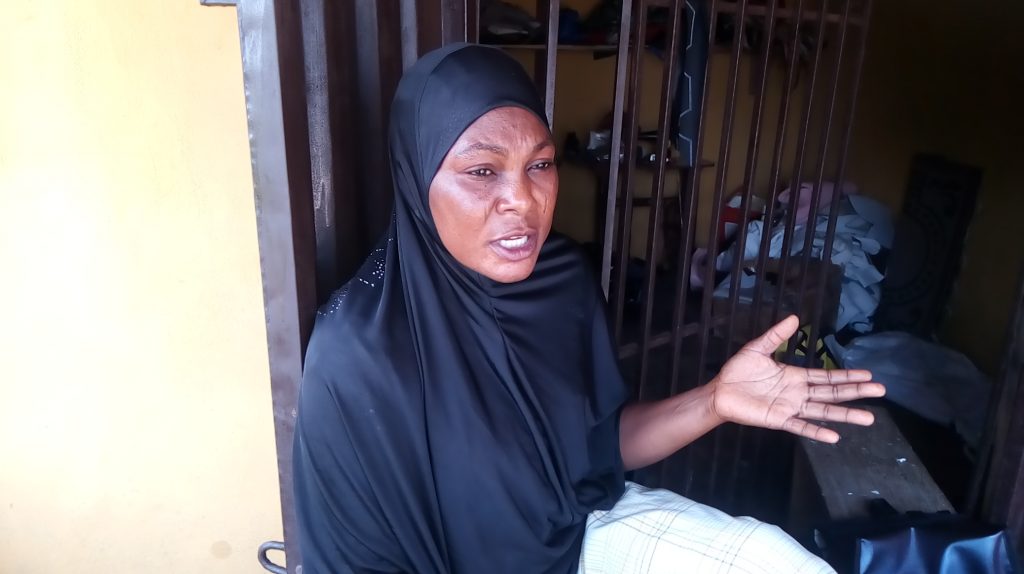
Hers was multiple tragedies: she lost the private guard for her shops and lost several million naira worth of goods and property in razed buildings. According to her, the total loss was N12 million.
“It happened like a dream but I haven’t recovered from this,” she says. “It’s huge.”
Adesina managed to return to business in September with a loan from a cooperative bank. But “it has not been easy going through”, she revealed.
“There is no help whatsoever from the government.”
By Adesina’s left-hand side, what remained of the eight-wing shops belonging to the Methodist Church were broken glasses from the television sets in a technician’s workshop. Other seven shops housing agricultural produce have been wiped off by fire.
Far right, there were two shops, one occupied by a leather artisan and the other by a fashion designer. Yemisi Ogunbiyi, the leather bag artisan, had deliveries for the mid-July Eid-El-Kabir celebration and another church anniversary when her shop was set on fire.
“I am a graduate, but had to learn this trade when there was no white-collar job,” says Ogunbiyi. “I bought the machine for N150,000 and the generator for N60,000 on the same day in 2019 with all my savings. People patronised me because they saw how equipped I was. But, in one night, all my sweat was ruined.
“I am in a serious debt. I have lost sleep because the people that gave me contracts are still on my neck for refunds.”
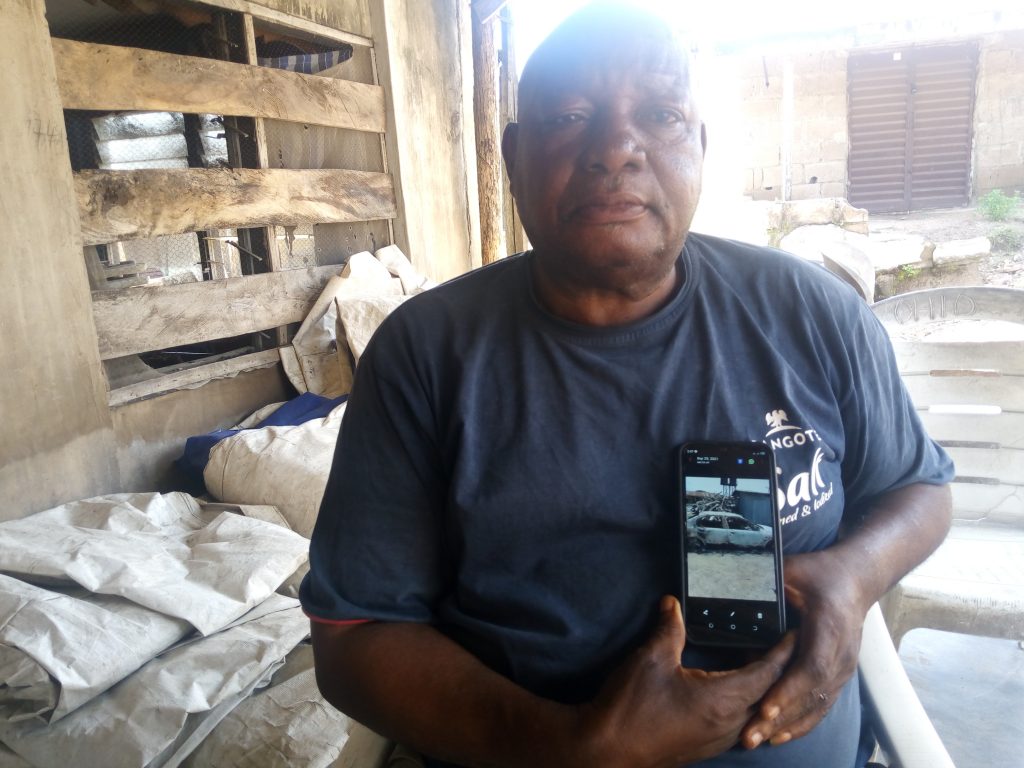
The records of ruins are inexhaustible. When the palace was razed, three other Toyota cars were torched, while all residents, including the king, scampered for safety. Two vehicles loaded with 2-by-2 planks of wood were also burnt.
Though the town is dominated by farmers, small and medium-scale businesses were affected by the Fulani attack.
N193M DEMANDED ‘NOT ENOUGH COMPENSATION’
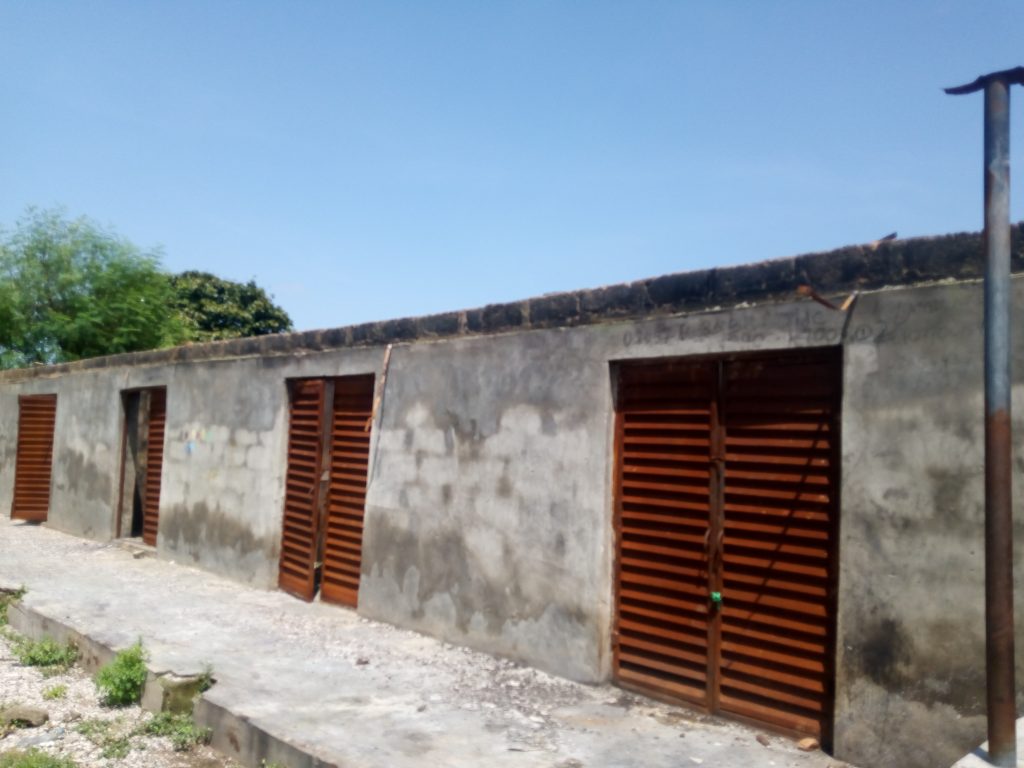
It is hard to tell which structure was not brought down by fire because of some of the ongoing reconstruction. Some of the surrounding edifices have new corrugated iron sheets. On October 4, The Nation reported that Ìgàngàn residents demanded a compensation of N193 million over the loss incurred after the June 5 attack, but community leaders told FIJ their losses were underestimated.
“Our losses are way beyond that,” says Taiwo Adeagbo, the secretary of the farmers’ association in Ìgàngàn. “I’m still collating the list of the farmers that would need support after the devastating attacks.”

Apart from the obvious wrecks, some Ìgàngàn farmers have been rendered unfit to return to the farm as a result of the injuries sustained.
Not only this, FIJ gathered that seven nomadic schools in Ìgàngàn have been deserted because of their locations in the bushes formerly inhabited by the evicted Fulani herders. On the record, over 800 schoolchildren across these schools dropped out of school between June and October 2021.
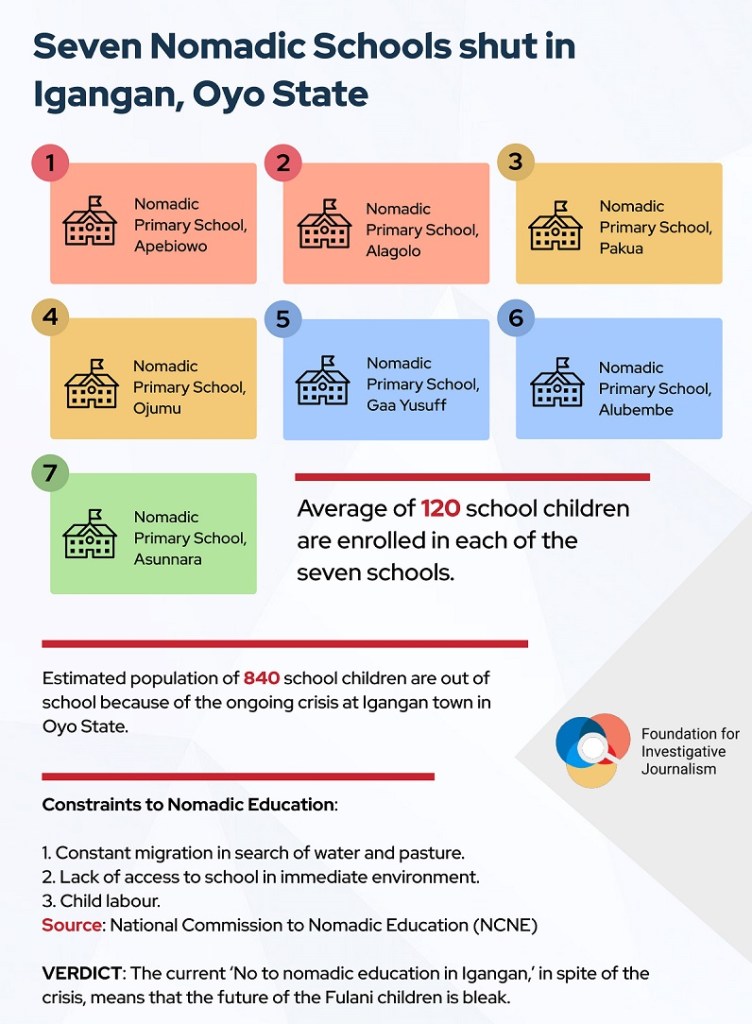
In August, Nureni Adeniran, Chairman of the Oyo State Universal Basic Education Board (SUBEB), told FIJ that it is more important to preserve the teachers and pupils in the nomadic schools than to keep them in school.
He expressed hope for the reopening of the schools by the next academic calendar.
“Everyone is aware of the high level of insecurity within schools in the north. So when we received the reports that the children and the teachers were not safe in Ìgàngàn, it was only reasonable to prioritize their lives, hence, the school closure,” Adeniran said.
“It is in their best interest to take that decision rather than allow the children to be kidnapped. Right now, the Oyo State Government is strengthening local security agencies and state actors to beef up security in those volatile areas. By the time the next session begins, I believe the schools will be good enough to reopen.”
Till now, however, the schools are yet to reopen.
AN INVITATION TO HELL

The long-held crisis between Fulani herders and farmers in Ìgàngàn gained prominence after Fatai Aborode, an agricultural entrepreneur and politician, was assassinated in December 2020 along his farm in the town.
Before three people were later arrested in connection with the murder, sympathisers across the Yorubaland, especially Sunday Adeyemi, popularly called Sunday Igboho, from the neighboring Oke-Ogun region, had risen to the occasion and protested the activities of the Fulani in Ìgàngàn who were accused of abductions and cruel slaughters, among others.
Specifically, Igboho supervised the eviction of over 1,000 Fulani from Igangan on January 25. Many applauded his daring move, and it earned him the strength to push the campaign for the Yoruba Nation in five other southwest states.

DID IGBOHO’S INTERVENTION KEEP IGANGAN SAFE?
There had been countless underreported abductions in Ìgàngàn before Igboho’s visit in January. Following Aborode’s death, he dashed into Ibarapa forests to evict the Fulani herders.
FIJ’s findings revealed that the herders and their cows were sent out of seven Ìgàngàn towns, namely Apebiowo, Alagolo, Pakua, Ojumu, Gaa Yusuff, Alubembe and Asunnara.
According to the Ìgàngàn farmers’ secretary, “An average of two people were kidnapped in Ìgàngàn monthly between 2019 and January 2021”.
Two of the people kidnapped at different times in 2019 are Lukmon Jimoh and Wasiu Agbegende. Jimoh was released after a ransom of N1 million was paid, while Agbegende’s family parted with N2 million.
Kidnapped in 2020, Abdullah Olosunde paid N7.4 million as ransom and Jimoh Nasir paid an undisclosed amount for his freedom.
Monsuru Aderoju marked the 2021 New Year’s Day in kidnappers’ den after he was abducted in late December and kept until January 4. A ransom of N4.2 million was also paid to secure Aderoju’s release.
In March 2021, some Fulani set up two butchers, Kazeem Fasasi and Gafar Olagunju, in March 2021. They had tied their workers and coerced them to lure their bosses to the abattoir. When they arrived, the workers were freed and the two butchers were whisked away.
The victims’ families paid the sum of two million naira to free them three days later.
These two butchers were abducted after the Fulani eviction, three months before the massive killings in June, suggesting that Ìgàngàn’s security threats didn’t end despite Igboho’s intervention. Perhaps, the place was a little more secure, as some residents opined.
HEAVE OF RELIEF, RUMOURS OF WAR
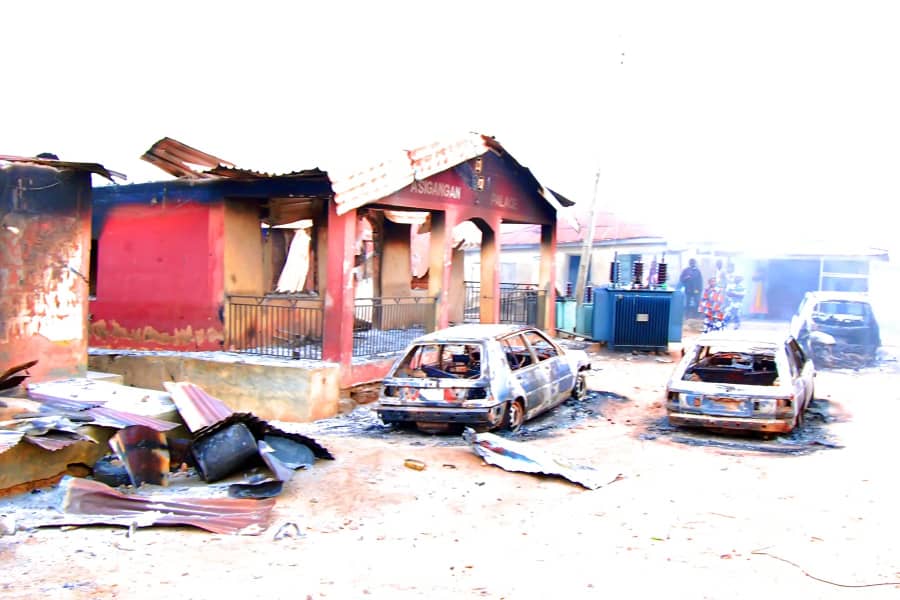
Unlike the first months and years when the morning was greeted by echoes of tragedies in Ìgàngàn, October heralded a fresh air for all.
The junction to Gaa Seriki, where Saliu Abdulkadir, the evicted Seriki Fulani of Igangan, used to live is fully manned by officers of the Amotekun security outfit and the Oyo State internal security group known as ‘Operation Burst’.
Mobile policemen and officers of the Nigerian Army are also stationed at some farms. At last, people are gradually picking up their pieces. No one is yelling over abduction of their loved ones.
Free-spirited vigilantes now offer periodic sacrifices to the ancestral powers and renew their loyalties. In Ìgàngàn, the prominent god is Gbohungbohun.
For the first time in a very long time, says Ìgàngàn farmers’ secretary, people are happy because their maize plants are doing well. Before now, straying cows would trample on acres of cassava plantation and eat up maize plants.
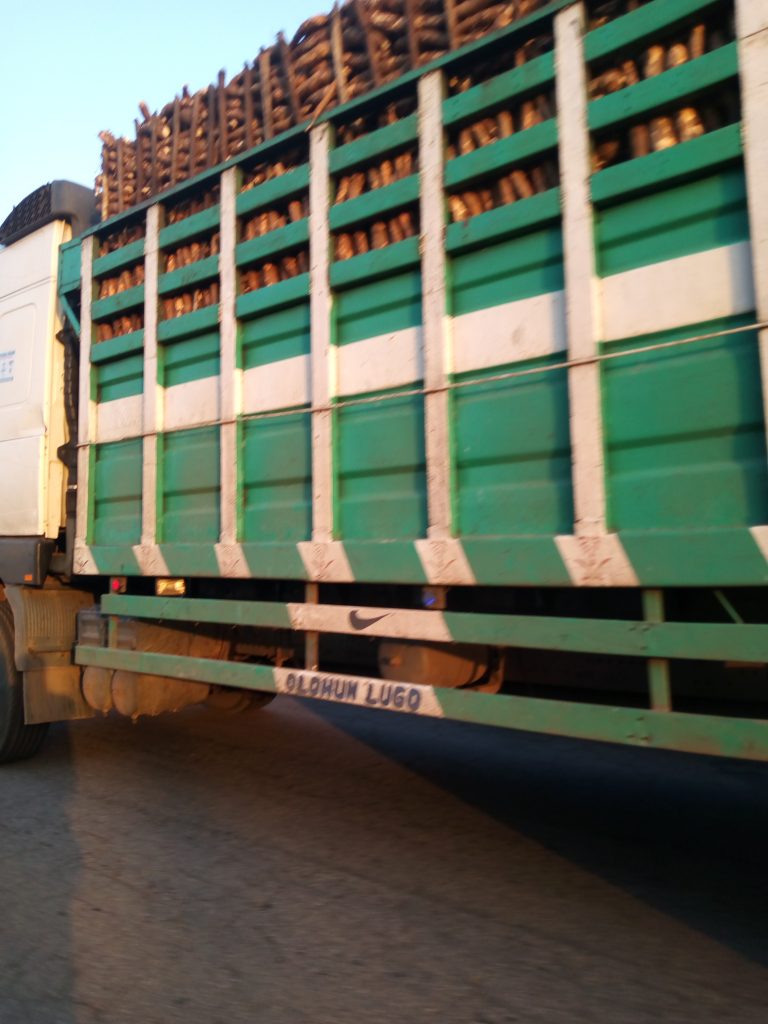
Things have changed. Approaching Ìgàngàn from Ayete, the air from the Ayete mountains tells a visitor that cassava tubers are being dried. A bit further, hired labourers are busy loading maize cobs into trucks and lorries.
Although the locals are heaving a sigh of relief now, the vigilantes say they are still receiving threats that the Fulanis would return.
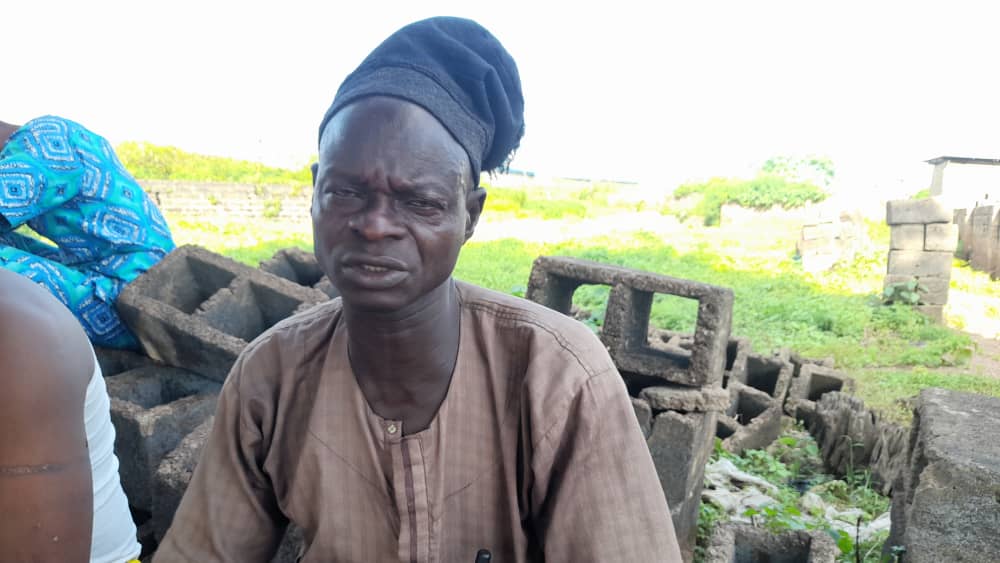
Saheed Ako, the Ìgàngàn vigilante commander, says, “We have cooked their food for them. It’s steaming. I dare them to come if they won’t go back in pieces.
“In the past, we allowed them to grow well with our people to the extent that their population almost outgrew that of the indigenes. Now that they are gone, it will be tough for them to return.”
Asked if their dane guns are adequate to confront the men with all sorts of sophisticated weapons like they brought in the midnight of June 5, he laughs. “The mystic powers are with us. There are combatant youths ready to go to war.”
There is but one challenge capable of damping the morale of the Ìgàngàn defenders: funding.
“Over 20 of us have been laid-off,” says the vigilante commander. “The rest of us still retained have not been paid in the last four months, not to talk of incentives for volunteers.”
When FIJ spoke with Wasiu Olatunbosun, the Oyo State Commissioner of Information, he said, “The local government chairmen have been saddled with the responsibility of paying the salaries of local vigilantes.
“If you had talked of the Amotekun and Operation Burst, I would have offered explanations on whatsoever concerns them. However, the governor has also implored the chairmen to always speak with him if there is any need for support from the state government.”
Despite the Ako’s insistence on nonpayment, Lateef Akorede, the local government chairman for Ibarapa North, denied owing any of the vigilantes a dime.
“I don’t know what you’re talking about,” he said. “I have paid all those entitled for salaries under the local government.”
Produced in partnership with the Centre for Democracy and Development (CDD) with support from Foreign and Commonwealth Development Office (FCDO)
Subscribe
Be the first to receive special investigative reports and features in your inbox.


